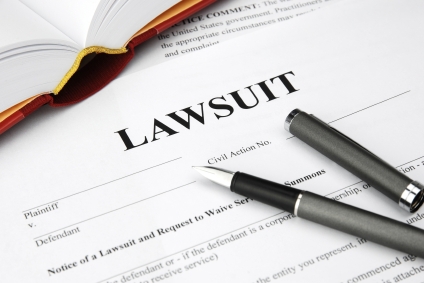- Note the time and date you were served with the lawsuit directly on your copy of the lawsuit.
- Make a copy of all of the papers you have received, keeping one for yourself and sending the original to your insurance broker.
- Call your insurance broker to let him or her know that lawsuit papers are coming.
- Designate a media spokesperson (and at least one back-up). These persons should be trained in advance of a crisis about what is and is not appropriate information to release to the media.
- Make sure that everyone knows the identity of the designated spokespersons(s). Nonauthorized persons, including staff, volunteers and board members, should not talkto the media.
- Do not admit wrongdoing. Keep in mind that anything said to the media by anyone in a position of authority can be used against the organization in any litigation that results. As tempting as it might be to admit liability to "get it off your chest," you can be sure that this admission will greatly diminish your attorney's ability to defend you in a lawsuit.
- Remember that "no comment" says a lot. "No comment" fills pages in the minds and imaginations of readers and viewers. What is the organization trying to hide? Isn't there anything it can say about this dreadful event? Count on the fact that a skillful reporter will find someone to comment about the incident — including your organization's handling of the crisis. Remember to think carefully about what you say and what you don't say.
- Stay calm and "on message." The key is focusing on the message you want to deliver. Advance preparation is necessary.
- Deliver a positive, truthful message about your organization. While it is important not to evade a reporter's questions altogether, always begin your response with a positive message about your organization which incorporates your commitment to safety. For example, "The mission of the Youth Activities Center is to promote safe recreational activities for disadvantaged children in this community. Our commitment to safety is reflected in our safety training programs for athletes, rigorous screening and training program for volunteer coaches, and provision of appropriate safety gear for all participants."
- Do not improvise your answers. If you do not know the information asked by the reporter, admit that fact and if appropriate, pledge to find out as soon as practical. Establish a time and place to provide information updates.
- Show concern and compassion. Compassion for victims and those who are disadvantaged by circumstance, physical disability or economic status is at the heart of the work of many community-based nonprofits. The public expects a nonprofit spokesperson to demonstrate compassion. Never dismiss an incident where victims are involved as inconsequential.








